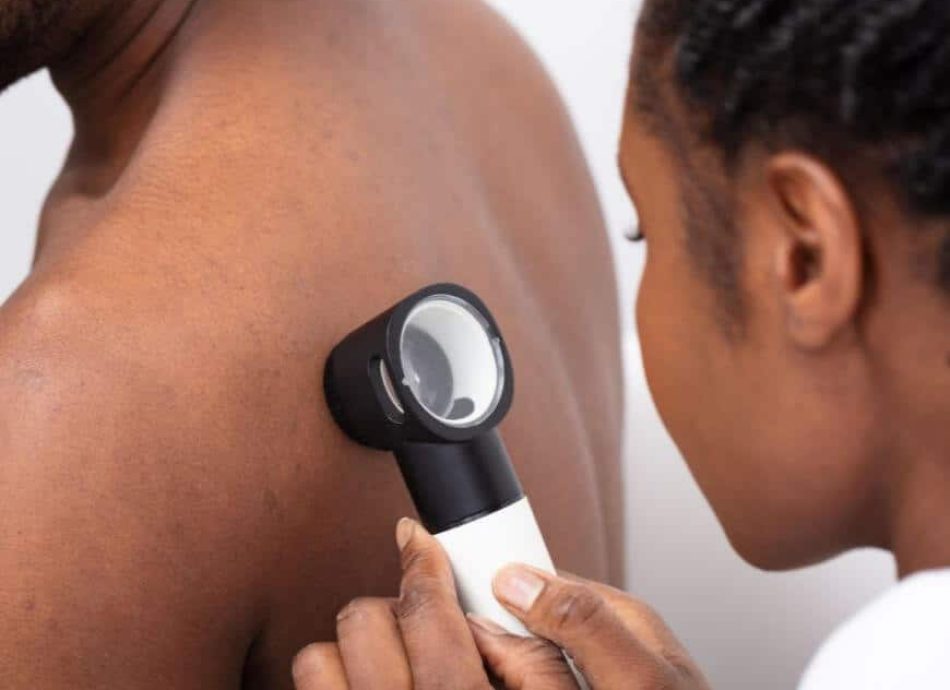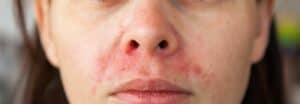Award winning dermatology service, with over 20 years on experience
Short waiting lists, on some occasions offering same week appointments
Safe environment, in Care Quality Commission approved facilities
PSORIASIS Treatments Include:
TREATING PSORIASIS IN SHREWSBURY
Psoriasis is a common skin problem affecting about 2-3% of the population and can first develop at any age but most commonly between the ages of 15-30. Psoriasis may affect the skin, scalp and nails and appears as patches of thickening, redness and scaling of the skin. Some people are more likely to develop psoriasis than others, particularly if there is someone else in their family who has psoriasis: in other words, it is often a genetic or hereditary disease. However, the trigger for psoriasis to appear is often an outside event, such as a throat infection, stress or an injury to the skin. Flare-ups of psoriasis can come and go throughout life and can flare up at any time.
psoriasis uk treatment Options
Although there isn’t a cure for psoriasis, there are lots of treatments to help relieve your symptoms and our Dermatologists are able to provide the most up-to-date advice and management available. As psoriasis can flare up from time to time, treatment may need to be started and stopped throughout your life. There are lots of different ways psoriasis can be treated and your dermatologist will assess your skin and recommend the best treatment for you.
The most common treatments aim to clear the psoriasis as much as possible and typically come in the form of creams, ointments or foams which are applied to the surface of the skin. It can take several weeks of use to clear up patches of psoriasis. In more severe cases, ultraviolet light treatments or a wide range of oral or injectable drugs can be used to effectively treat psoriasis.
TOPICAL CREAMS & LOTIONS
Topical treatments are usually the first treatment aimed at alleviating the symptoms of psoriasis and can work well to control the condition. Creams include emollients, soap substitutes, vitamin D, tar and steroids which are applied directly to the affected areas.
PHOTOTHERAPY
Phototherapy involves precise doses of ultraviolet light being delivered by a medical UV-machine. The light slows down the production of skin cells and is effective to treat psoriasis that has not responded well to topical treatments.
SYSTEMATIC MEDICATIONS
Systemic medications are reserved for severe or life-limiting psoriasis when other treatment options have been exhausted as the medications can have serious side effects. These treatments work throughout the entire body rather than targeted to the areas of psoriasis.
FREQUENTLY ASKED QUESTIONS
WHAT DOES PSORIASIS LOOK LIKE?
There are several clinical patterns of psoriasis (see pictures):
Chronic Plaque – The most common variant, it tends to occur on the extensor aspects of the elbows and knees and in the scalp. Skin changes include pink or red inflamed, thickened plaques with copious white scale (see image).
Sebopsoriasis – similar to scalp psoriasis but can occur on the face, chest, armpits and groin
Flexural – raw, red areas in the groin, armpits or under the breasts
Guttate – multiple small spots of psoriasis that erupt on the trunk following a sore throat or illness (see image).
Erythrodermic – extensive disease covering more than 90% of the body surface area.
Palmoplantar pustular – pus-filled inflamed spots and the palms and soles
Pustular – the most severe form of psoriasis, skin lesions are red, tender and filled with pus spots
HOW MIGHT PSORIASIS AFFECT ME?
Psoriasis can vary in severity from no more than a minor irritation to a life-limiting issue – in extreme cases, sometimes requiring hospitalisation. Even a small bit of psoriasis in a delicate area such as the face or genitals can cause immense distress. Occasionally it can be itchy or cause painful splitting or fissuring of the skin. As well as the skin being affected, the nails can become abnormally brittle with flaking and pitting. 5% of patients might develop arthritis associated with psoriasis.
WHAT CAN I DO TO HELP MY PSORIASIS?
Having a healthy diet and regular exercise have been shown to improve the symptoms of psoriasis. Stress has also been identified as a trigger for flare-ups in some people so reducing your stress levels could help. Smokers have been found to have an increased risk of developing psoriasis as it is theorised that toxins in cigarette smoke may affect parts of the immune system involved with psoriasis. Excessive alcohol consumption tends to also exacerbate psoriasis symptoms. Using a moisturiser alongside any other treatment is highly recommended to soften the skin and prevent itching.
IS PSORIASIS CONTAGIOUS?
No, psoriasis is not contagious
REQUEST A CALL BACK
Please fill in this form and one of our team will give you a call back to arrange a consultation with one of our expert dermatologists.

HEAR FROM OUR PATIENTS
WHY TREAT YOUR PSORIASIS AT ST. MICHAEL'S CLINIC?
latest INSIGHTS AND ADVICE

Your Guide to Autumn Skincare
With the weather gradually cooling and leaves taking on their autumnal palette, it’s also a gentle reminder that winter is on its way. Maintaining a vibrant and healthy skin during the transition from summer to cooler days can be challenging. Fear not – this comprehensive

The Definitive Guide to Eczema
Eczema Awareness Month in October is a global initiative spotlighting those who suffer from this demanding skin ailment. Our perpetual aim is to arm you with a well-rounded understanding of eczema‘s core causes, differing treatments and beneficial coping mechanisms. This all-inclusive guide offers penetrating insights

Exploring Varicose Veins: Recognising, Managing and Preventing
Varicose Disease Awareness Month is focused on raising awareness about varicose veins, a common but frequently overlooked condition affecting millions globally. Throughout September, our goal is to emphasise the importance of early detection, explore the causes, treatment options and highlight lifestyle changes that can help




